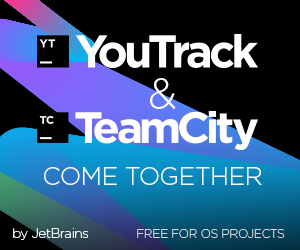NetMQ is a 100% native C# port of the lightweight messaging library ZeroMQ.
NetMQ extends the standard socket interfaces with features traditionally provided by specialised messaging middleware products. NetMQ sockets provide an abstraction of asynchronous message queues, multiple messaging patterns, message filtering (subscriptions), seamless access to multiple transport protocols, and more.
You can download NetMQ via NuGet.
Before using NetMQ, make sure to read the ZeroMQ Guide.
The NetMQ documentation can be found at netmq.readthedocs.org. Thanks to Sacha Barber who agreed to do the documentation.
There are also a few blog posts available, which you can read about here:
- Somdorons blog
- Hello World
- The Socket Types
- Socket Options/Identity and SendMore
- Multiple Socket Polling
- Sending From Multiple Sockets
- Divide And Conquer
Here is a simple example:
using (var context = NetMQContext.Create())
using (var server = context.CreateResponseSocket())
using (var client = context.CreateRequestSocket())
{
// Bind the server to a local TCP address
server.Bind("tcp://localhost:5556");
// Connect the client to the server
client.Connect("tcp://localhost:5556");
// Send a message from the client socket
client.Send("Hello");
// Receive the message from the server socket
string m1 = server.ReceiveString();
Console.WriteLine("From Client: {0}", m1);
// Send a response back from the server
server.Send("Hi Back");
// Receive the response from the client socket
string m2 = client.ReceiveString();
Console.WriteLine("From Server: {0}", m2);
}We need help, so if you have good knowledge of C# and ZeroMQ just grab one of the issues and add a pull request. We are using C4.1 process, so make sure you read this before.
Regarding coding standards, we are using C# coding styles, to be a little more specific: we are using camelCase for variables and fields (with m_ prefix for instance members and s_ for static fields) and PascalCase for methods, classes and constants. Make sure you are using 'Insert Spaces' and 4 for tab and indent size.
You can also help us by:
- Joining our mailing list and be an active member
- Writing tutorials in the github wiki
- Writing about the project in your blog (and add a pull request with a link to your blog at the bottom of this page)
Since version 3.3.07 NetMQ changed the number serialization from Little Endian to Big Endian to be compatible with ZeroMQ. Any NetMQ version prior to 3.3.0.7 is not compatible with the new version. To support older versions you can set Endian option on a NetMQ socket to Little Endian, however doing so will make it incompatible with ZeroMQ.
We recommend to update to the latest version and use Big Endian which is now the default behavior.
You can join our mailing list here.
NetMQ is owned by all its authors and contributors. This is an open source project licensed under the LGPLv3. To contribute to NetMQ please read the C4.1 process, it's what we use. There are open issues in the issues tab that still need to be taken care of, feel free to pick one up and submit a patch to the project.





